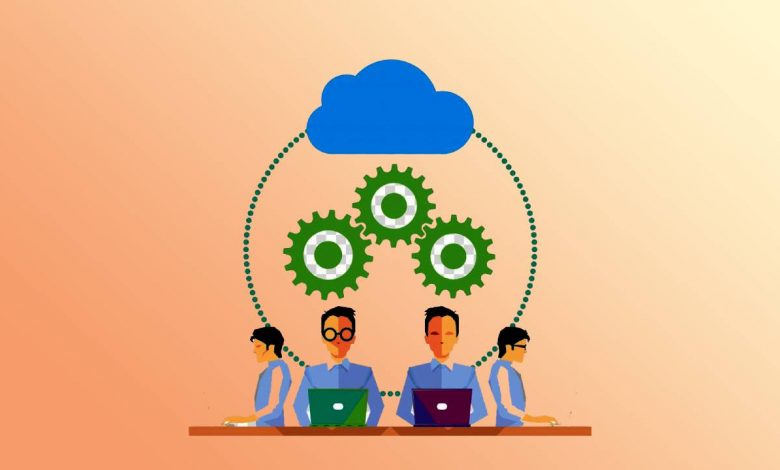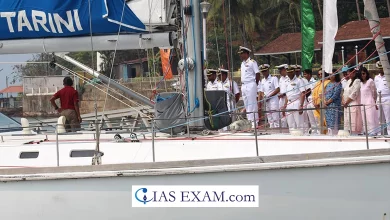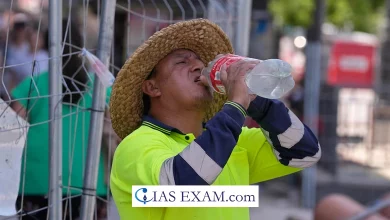Daily Current Affairs for UPSC
Information Technology Rules, 2021

Topic- Governance [GS Paper-2]
Context- Recently, the central government has notified amendments to the Information Technology (Intermediary Guidelines and Digital Media Ethics Code) Rules 2021.
Key Amendments to the IT Rules, 2021
- The original IT Rules, 2021 obligated the Social Media Intermediaries to merely inform its users of the “rules and regulations, privacy policy and user agreement” that governed its platforms along with the categories of content that users are prohibited from hosting, displaying, sharing etc. on the platform.
- In the current amendment this obligation on the SMIs has now been extended to ensuring that its users are in compliance with the relevant rules of the platform.
- Also the intermediaries are now required to “make reasonable” efforts to prevent prohibited content being hosted on its platform by the users.
- This will further enhance the responsibility and concomitantly the power of SMIs to police and moderate content on their platforms.
- These measures will allow users to trample on freedom of speech and expression.
- The amendment has also introduced an obligation on SMIs to respect all the rights accorded to the citizens under the Constitution, including in the articles 14, 19 and 21.
- Considering the importance of SMIs in public discourse and the implications of their actions on the fundamental rights of citizens, the horizontal application of fundamental rights is commendable.
- Through the provisions of new amendments SMIs are now obligated to remove information or a communication link in relation to the six prohibited categories of content as and when a complaint arises.
- They are now bound to remove such information within 72 hours of the complaint being made.
- SMIs need to take all reasonable measures to ensure accessibility of its services to users along with reasonable expectation of due diligence, privacy and transparency.
- While there are concerns that ensuring accessibility may obligate SMIs to provide services at a scale that they are not equipped to, the obligation is meant to strengthen inclusion in the SMI ecosystem such as allowing for participation by persons with disabilities and diverse linguistic backgrounds etc.
- In this context, the amendments also mandate that “rules and regulations, privacy policy and user agreement” of the platform should be made multi lingual as per the languages listed in the eighth schedule of the Constitution.
- However, as this obligation is open to by different courts, it could translate to disparate duties on the SMIs.
- Also persistent alterations to design and practices of the platform, that may result from a case-to-case based application of this obligation, could result in heavy compliance costs for them.
Need for the Amendment
- The objectives of the amendments were three-fold i.e.
- There was a need to ensure the interests and constitutional rights of netizens, not being contravened by big tech platforms.
- Also it was necessary to strengthen the grievance redressal framework in the Rules.
- It was a matter of concern that compliance with these should not impact early stage Indian start-ups.
- The three fold objective translated into a set of proposed amendments that can be broadly classified into two categories.
- The first category involved allocating additional obligations on the SMIs to ensure better protection of user interests.
- The second category involved the establishment of an appellate mechanism for grievance redressal.
Grievance Appellate Committee
- In order to empower users of social media platforms, a robust grievance redressal mechanism must be designed which can effectively and efficiently address their concerns.
- The IT Rules, 202 mandated that all social media platforms should have a grievance officer who would acknowledge the receipt of a complaint within 24 hours and dispose of it within 15 days.
- However, the performance of the current grievance redressal mechanism has been below par.
- Also the transparency reports show that the number of user complaints continue to be quite low when compared to the content against which the platform acts proactively or is obligated to remove due to governmental or court orders.
- To remedy this, the government has established Grievance Appellate Committees (GAC).
- The committee is a three-member council out of which one member will be a government officer (holding the post ex officio) while the other two members will be independent representatives.
- Under its provisions users can file a complaint against the order of the grievance officer within 30 days.
- The committee is required to adopt an online dispute resolution mechanism which will make it more accessible to the users.
Information Technology Rules, 2021
- The Information Technology (Intermediary Guidelines and Digital Media Ethics Code) Rules, 2021 is a subordinate legislation that suppresses India’s Intermediary Guidelines Rules 2011.
- The IT rules 2021 have originated from section 87 of the Information Technology Act, 2000 and are a combination of the draft Intermediaries Rules, 2018 and the OTT Regulation and Code of Ethics for Digital Media
- The Central Government of India along with the Ministry of Electronics and Information Technology (MeitY) and the Ministry of Information and Broadcasting (MIB) have jointly developed the rules.
- The IT Rules 2021 aims at empowering ordinary users of social media platforms and OTT platforms with a mechanism for redressal and timely resolution of their grievance with the help of a Grievance Redressal Officer (GRO) who should be a resident in India.
- Special emphasis was aso given on the protection of women and children from sexual offences, fake news and other misuse of the social media.





.png)



